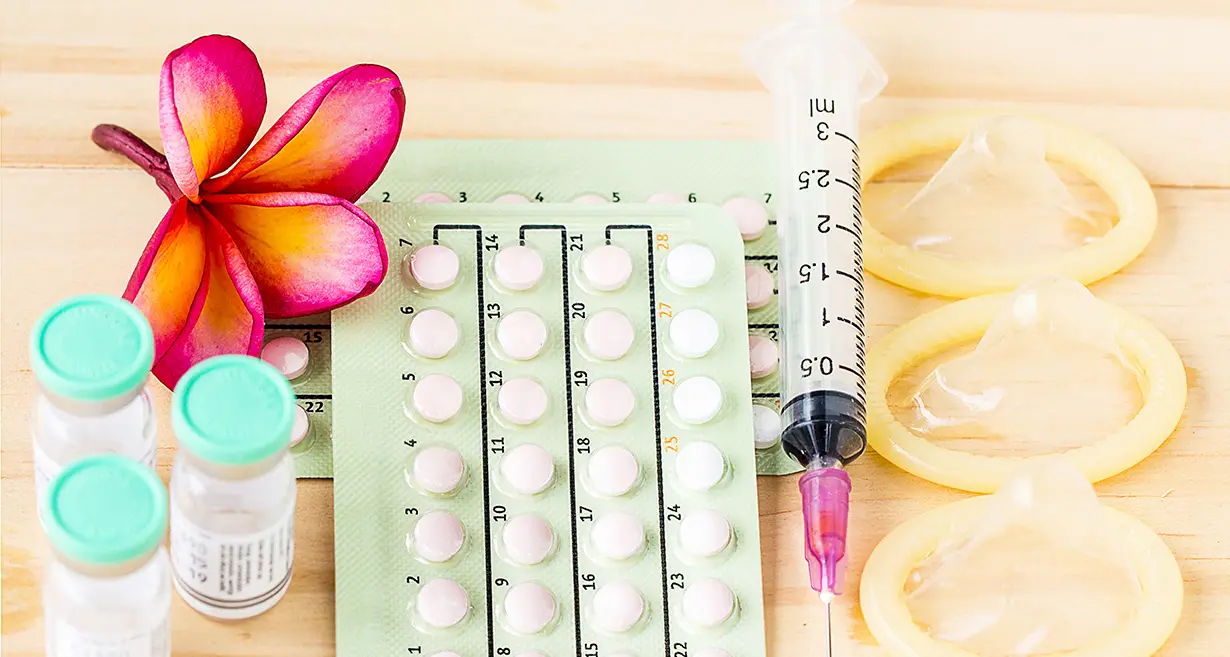
- December 23, 2022
- Queens
- 0
The thyroid-stimulating hormone high or low is quantified by the blood test to check the level of TSH by the means of a TSH-specific test. The outcomes demonstrate how well a person’s thyroid is functioning.
TSH test results can be used by doctors to identify thyroid conditions like hypothyroidism and hyperthyroidism.
TSH, a hormone that activates the thyroid gland, is created by the pituitary gland.
The thyroid is a butterfly-shaped gland located in the front of the neck, behind the skin, and in the throat. It creates hormones that aid in controlling a variety of physiological processes, including metabolism, heart rate, and body temperature.
In this article, we discuss The TSH test, what different TSH levels indicate, and normal TSH levels for females during pregnancy. We also go over the available medications and what low and high TSH levels mean.
What is TSH or thyroid-stimulating hormone?
The hormone known as thyrotropin more commonly known as thyroid-stimulating hormone (TSH), is released by your pituitary gland, which in turn allows your thyroid to produce and secrete the hormones known as thyroxine (T4) and triiodothyronine (T3).
The health of your body’s metabolic rate—the pace at which it converts the food you eat into energy and uses it—is dependent on these two hormones. Triiodothyronine and thyroxine also support
- Your digestive system and heart.
- Control of muscle.
- Development of the brain.
- Bone preservation
Hormones are chemical substances that relay messages through your blood, to your muscles, organs, and other tissues to coordinate the various functions of the body. These chemical messengers tell your body what to do and when.
In this Article
Why is thyroid-stimulating hormone (TSH) important?
To ensure that your entire body achieves the balance of homeostasis, think of your thyroid gland as a clearinghouse where information flows in and out.
To maintain a balance known as homeostasis, thyroid stimulating hormone (TSH) is created by the pituitary gland in your brain and sent to the thyroid. The pituitary gland is a tiny, pea-sized gland that is situated beneath the hypothalamus at the base of the brain. TSH is one of the eight hormones it produces and secretes. Your thyroid and pituitary gland are endocrine system components. The posterior (back) lobe and the anterior (front) lobe are the two lobes that make up your pituitary gland. TSH production takes place in the anterior lobe.
To make sure you’re functioning at your best, TSH instructs your thyroid to generate more or fewer hormones, specifically triiodothyronine (T3) and thyroxine (T4). These two hormones control a variety of vital bodily functions, such as metabolism, body temperature, and brain growth.
Understanding high, low, and normal levels of TSH is essential since the proper amounts of T3 and T4 are crucial for helping to maintain a properly functioning body in many ways.
How are TSH levels controlled?
Through a negative feedback loop, several hormones and glands in your endocrine system collaborate to precisely regulate the amount of TSH in your blood. The hypothalamus and the pituitary gland receive the hormones that are produced by any end organ, letting them know that a suitable quantity of hormone is being produced.
Thyroid-releasing hormone (TRH) is first released by the brain, which then causes the pituitary gland to release thyroid-stimulating hormone (TSH).
A stalk of blood arteries and neurons connects your hypothalamus to your pituitary gland. The pituitary stalk is what it is known as. Your brain’s hypothalamus is responsible for controlling processes including digestion, heart rate, blood pressure, and body temperature.
Because of this negative feedback loop, your TSH levels are affected if your thyroid gland is generating too much or too little thyroid hormones. Furthermore, the function of your thyroid is also affected if your pituitary gland is producing too much or too little TSH.
Your hypothalamus instructs your pituitary gland to release particular hormones through the stalk. In this instance, your anterior pituitary lobe is stimulated to release TSH by your hypothalamus’ secretion of thyroid-releasing hormone (TRH). To block (avoid) the release of TSH from your anterior pituitary, your hypothalamus can also release the hormone somatostatin.
Thyroxine, also known as T4, and triiodothyronine, sometimes known as T3, are then stimulated to release into the bloodstream by thyroid cells. If the levels of thyroxine and triiodothyronine are too high, these two hormones stop your pituitary gland from releasing additional TSH, ending the cycle. The cycle restarts when T4 and T3 levels fall.
How are TSH levels measured?
A medical expert will take blood from an inner arm vein for the TSH test. The drawn blood sample is then sent to a lab for further analysis.
Typically, there is no need for preparation before a TSH test. However, a person might need to fast or make other preparations if the doctor is screening the blood for multiple problems. This information will be given in advance by the doctor.
The most effective technique to track thyroid function is frequently a TSH test. To find the underlying cause, the doctor may need to do at least one further diagnostic test if a patient’s TSH levels are excessively high or low. Specific thyroid hormone levels and antibodies are examined during these testing.
Normal TSH Levels
- 0.7 – 15.2 micro-international units per milliliter (uIU/mL) – Infants up to 5 days old
- 0.72 – 11.0 uIU/mL. – Infants between 6 days to 90 days old
- 0.73 – 8.35 uIU/mL. – Babies between 4 months to 12 months old
- 0.7 – 5.97 uIU/mL. – Children that are between 1 year to 6 years old
- 0.6 – 4.84 uIU/mL. – Children those who are between 7 years to 11 years old
- 0.51 – 4.3 uIU/mL. – People who are between 12 years to 20 years old
- 0.27 – 4.2 uIU/mL. – Adults who are between 21 years to 99 years old
Typically, Hypothyroidism TSH levels are on the higher side and are often indicated by a TSH level of 10 mIU/L or greater. TSH levels between 4.5 and 10 mIU/L are regarded as subclinical hypothyroidism indicators.
TSH normal value ranges may vary significantly between laboratories. Verify the reference range on your results in your lab report. Ask your healthcare practitioner any questions you may have regarding your results.
What are normal TSH levels during pregnancy?
To guarantee the healthy development of their unborn children, pregnant women should have adequate levels of TSH and thyroid hormones. TSH levels change throughout pregnancy. The following are examples of normal TSH levels for females during pregnancy:
- 9–12 weeks of the first trimester: 0.18–2.99 (uIU/mL).
- 0.11 to 3.98 uIU/mL throughout the second trimester.
- 0.48 to 4.71 uIU/mL throughout the third trimester.
Always look up the reference range for your lab on the results report. Ask your healthcare practitioner if you have any questions regarding your results.
Low TSH levels
It’s most likely that your thyroid gland is producing too much thyroid hormone if your TSH level is too low. Hyperthyroidism, often known as an overactive thyroid, is this condition. Graves’ disease and thyroid nodules are just two of the many disorders that can cause hyperthyroidism. In the US, little under 1% of adults suffer from hyperthyroidism.
High amounts of thyroid hormone can result in lower-than-normal TSH levels because thyroid hormone inhibits TSH release. Rarely, problems with your pituitary gland, including a non-functioning pituitary adenoma, can cause low thyroid hormone levels in addition to low TSH levels.
Low TSH Symptoms
Typically, low TSH values indicate hyperthyroidism. The following are signs of hyperthyroidism:
- a quick heartbeat (palpitations).
- feeling unsteady and/or fearful
- Unexpected weight reduction accompanied by a rise in appetite.
- Diarrhea and more frequent bowel movements.
- enlarged eyes and/or altered vision.
- Warm, thin, and moist skin
- neck expansion, and swelling brought on by an enlarged thyroid gland (goiter).
- irregular periods of menstruation.
It’s crucial to discuss these low TSH symptoms with your healthcare physician if you’re experiencing them. It’s possible to treat hyperthyroidism.
High TSH levels
Generally, a TSH level high means that your thyroid may not be producing enough thyroid hormone. This condition of having a thyroid gland that is underactive is known as Hypothyroidism. Hypothyroidism can be brought on by some diseases, such as Hashimoto’s disease.
Too little thyroid hormone can cause your pituitary to produce too much TSH since thyroid hormone inhibits TSH release. Rarely, problems with your pituitary gland, such as a pituitary adenoma that secretes TSH, or uncommon hereditary disorders might cause your TSH and thyroid hormone levels to be higher than usual.
High TSH Symptoms
Typically, TSH high means that there’s hypothyroidism. Hypothyroidism symptoms include-
- Fatigue.
- Your hands are tingling and numb.
- Constipation.
- Gain in weight without cause.
- Depression.
- Sensitivity to withstand cold.
- Decreased sex inclination
- Heavy and frequent menstrual cycles.
If you are exhibiting these high TSH symptoms, it is crucial that you consult your doctor. Hypothyroidism can be treated.
Factors that affect TSH levels
Numerous other factors, in addition to age, sex, and pregnancy, might influence TSH levels. TSH levels may be affected by genetic, environmental, or intrinsic variables, according to evidence from a reliable source. Some of these elements could be:
- Simultaneous occurrence of additional circumstances
- Certain medicines,
- Smoking
- Season and time of day
- Supplements,
- Ethnicity,
- autoantibodies, and heterophilic antibodies
- Nutrition,
- Iodine status
- pollutants
Abnormal TSH level test results
You may not always have a medical condition if your TSH test results are abnormal. When evaluating the results of your TSH test, your healthcare professional will take into account a number of factors, including:
Your age: People over the age of 80 typically have greater TSH levels. Most elderly people with modestly elevated TSH levels don’t have any corresponding health issues.
Pregnancy: Pregnancy alters thyroid hormone levels. During the first trimester, it’s typical for TSH to be a little lower than usual before gradually rising.
Serious illness: Temporarily low TSH levels can occur in people who are critically ill from illnesses unrelated to the thyroid.
Other thyroid tests: The results of additional thyroid tests, like free T4 and thyroid antibodies, may have an impact on how your doctor interprets the results of the TSH test.
Treatment of Hyperthyroidism (low TSH levels)
Treatments for hyperthyroidism concentrate on lowering thyroid hormone levels to avoid long-term health issues.
Beta-blockers and antithyroid drugs might be necessary.
Radioiodine therapy is an additional successful treatment. This entails ingesting a capsule or liquid that is radioactively iodine-131-laced, which kills thyroid hormone-producing cells. However, those who receive radioiodine therapy could eventually become hypothyroid.
Severe hyperthyroidism can be treated by surgically removing the thyroid gland. This is frequently the last resort for patients with severe hyperthyroidism and those who cannot take first-line drugs, according to doctors.
Treatment of Hypothyroidism (high TSH levels)
Levothyroxine and other thyroid hormone replacement therapies are used by doctors to treat hypothyroidism. This drug should be taken once daily, or as directed. Every few months, more blood tests will be performed in order to let the doctor assess how well the medication is working.
The Food and Drug Administration (FDA) recommends that consumers take levothyroxine once daily, on an empty stomach, at least 30 minutes before a meal.
The FDA also advises patients to let their doctors know if they consume foods like soybean flour, walnuts, dietary fiber, or cottonseed meal since these may impact how levothyroxine is metabolized by the body. Levothyroxine’s absorption may potentially be slowed down by consuming grapefruit juice.
FAQ’s
The thyroid gland’s capacity to produce thyroid hormones is impaired by low estrogen levels. To encourage the thyroid to create more, TSH increases. Higher thyroid hormone production and lower TSH are caused by high estrogen levels. Lower estrogen levels during menopause might occasionally cause thyroid illness to develop.
TSH levels in adults should typically range from 0.4 to 4.0 mU/L.
The usual range for females between the ages of 18 and 29 may really be closer to 0.4-2.5 mU/L, according to some research.
3 This is because estrogen, a hormone that affects TSH levels, causes TSH concentrations in females to be greater than in males.
Experts’ opinions are divided on what is considered a dangerously high TSH level. Some claim that TSH levels over 2.5 mU/L are abnormal, whilst others believe that TSH levels are only excessive when they reach 4 to 5 mU/L.
TSH levels are slightly greater in elderly individuals, children, and adolescents than in middle-aged individuals. The usage of a greater threshold for these age groups has been a topic of discussion among thyroid doctors as a result. Certain drugs and extreme obesity can also raise TSH. During pregnancy, TSH levels are likely to change more often.
Yes, they can. Studies demonstrate that dietary modifications can enhance thyroid function and TSH. The healthiest diet is one that is customized for you, but some researchers have had success with Mediterranean-style eating.
Both hyperthyroidism and hypothyroidism can have a detrimental effect on a person’s fertility, making it difficult to conceive and bring a pregnancy to term. Your fertility may be impacted by the existence of autoimmune antibodies, whether or not you have hyperthyroidism or hypothyroidism.
The ovulation process can be hampered by abnormal TSH levels. Any form of thyroid problem that is not properly managed causes disruptions in the luteal phase, which is the second half of the cycle following ovulation.
Levels of progesterone play a role in this. Uncontrolled thyroid disease may make it difficult for a patient to conceive since implantation will not occur. A premature miscarriage could also occur as a result of inadequate implantation.
Conclusion
The level of the hormone in the blood is determined by a TSH test. The findings can be used by doctors to identify thyroid diseases like hypothyroidism and hyperthyroidism.
Depending on a person’s age, sex, and weight, normal TSH values might change significantly. Reference TSH values are still debatable, however, the typical range for the majority of persons lies between 0.4 and 4.0 mU/l.
Thyroid-stimulating hormone (TSH) levels that fluctuate frequently indicate a problem with your thyroid, which is either producing too little or too much thyroid hormone. Health problems that interfere with daily life might result from an overactive or underactive thyroid. Unusual TSH levels during pregnancy can result in difficulties.
The good news is that treatment from Queen’s Gynecology clinic in Delhi and medication prescribed by the well qualified doctors from the clinic can help to lower your TSH and thyroid hormone levels. Speak with your doctor if you have any questions regarding the TSH test or how the results should be interpreted. They can provide you with further information.























































































































































































